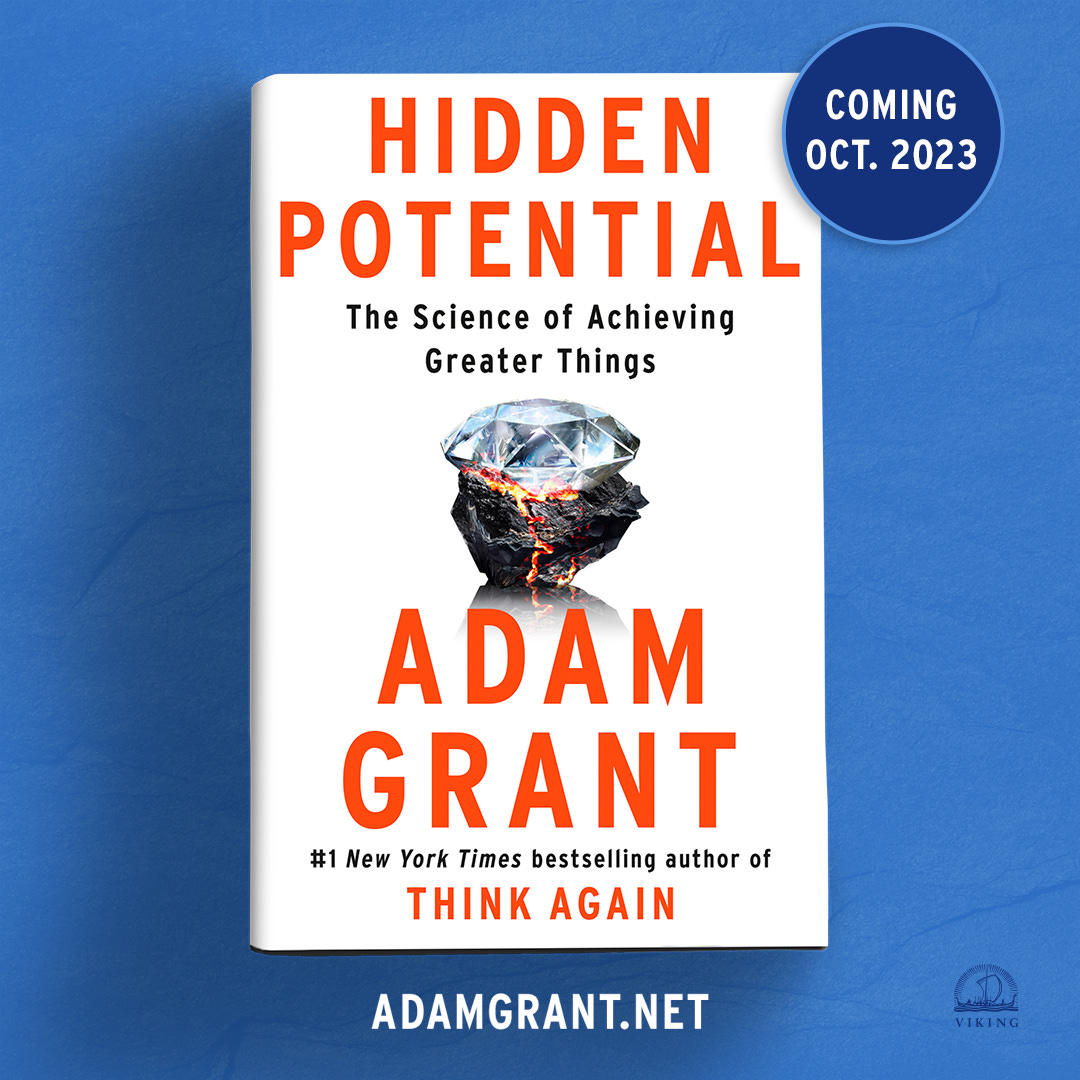The secret I’ve been keeping from you
I’m thrilled to introduce my next book, Hidden Potential. It’s about how we can elevate ourselves and others to unexpected heights. It debuts in October, and it’s now available for preorder here.
My burning question was how to improve at improving. I spent the past few years synthesizing the existing science and collecting new evidence. Along the way, I sought out people who made extraordinary strides to find out how they surpassed their supposed limits. They include two friends who struggled to learn one foreign language in school but can now speak ten, a fledgling musician who was denied by a prestigious conservatory due to a lack of ability but went on to win music’s most coveted prize, and groups of chess players and military cadets who prevailed against the odds.
Judging people by their current abilities masks their future potential. Progress depends less on talent than motivation and opportunity. Growth is not about the gifts you have—it's about the character you build.
As I wrote about hidden potential, I realized that I’ve spent most of my life nurturing it. As a diver with a shortage of power and flexibility, I was repeatedly dismissed by coaches. As a speaker with a surplus of anxiety, I was rejected for my first teaching job and for a wide range of stages. As an aspiring author, I was told that even my academic colleagues wouldn’t want to read my draft.
As I worked to exceed those low expectations, I was focused on reaching my goals. Looking back, though, my proudest achievements weren’t the peaks I eventually reached, but the progress I made along the way.
We all have hidden potential. I wrote this book for everyone who’s ever felt underrated or overlooked. But it’s not just for underdogs, longshots, and late bloomers—it’s also about how we can make sure they get a chance in schools, teams, and workplaces.
Many writers have chronicled the habits of superstars who accomplish great things. Hidden Potential explores how anyone can rise to achieve greater things.
I look forward to seeing some of you on tour this fall. In the meantime, I’d love your thoughts on how to engage the Granted community—maybe a book club over Zoom? Feel free to share ideas and suggestions below.



A book club & zoom meet ups are a great idea. I also think the idea of doing some small remote workshops that support your research would be exciting … I also would love to attend virtually when you & your peers like Berne Brown & Simon Sinek engage in a round table discussions … keep thinking out loud & sharing Adam, your words always lift me up … your my Ted Lasso ☺️
I love the Zoom book club idea. Perhaps something two-way & interactive like a Discord/WhatsApp/or Voxer channel for folks hoping to improve at improving?